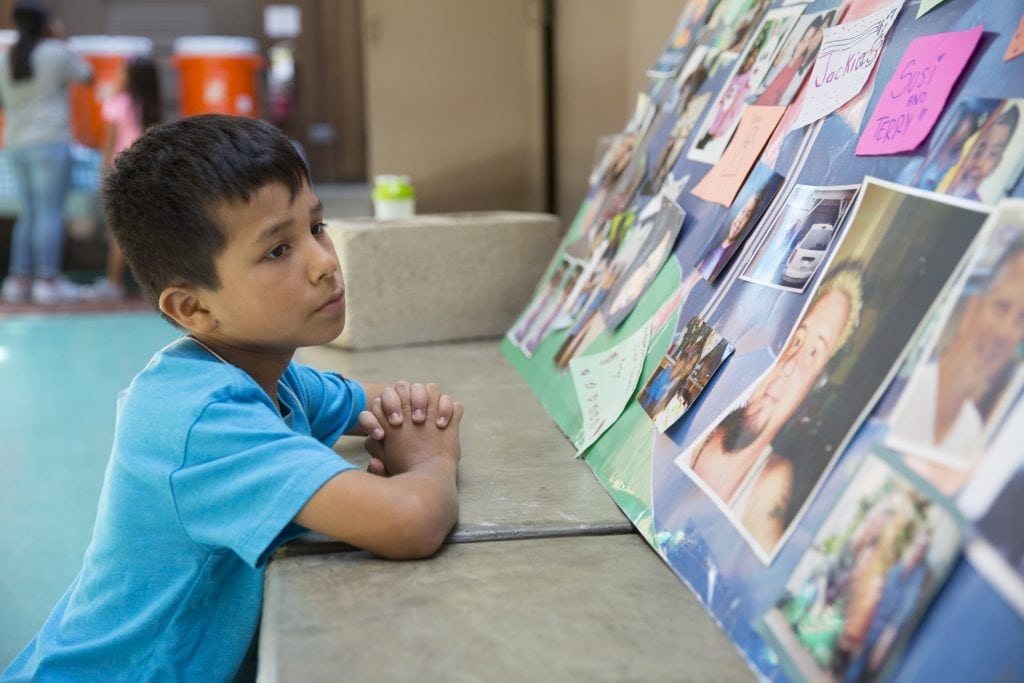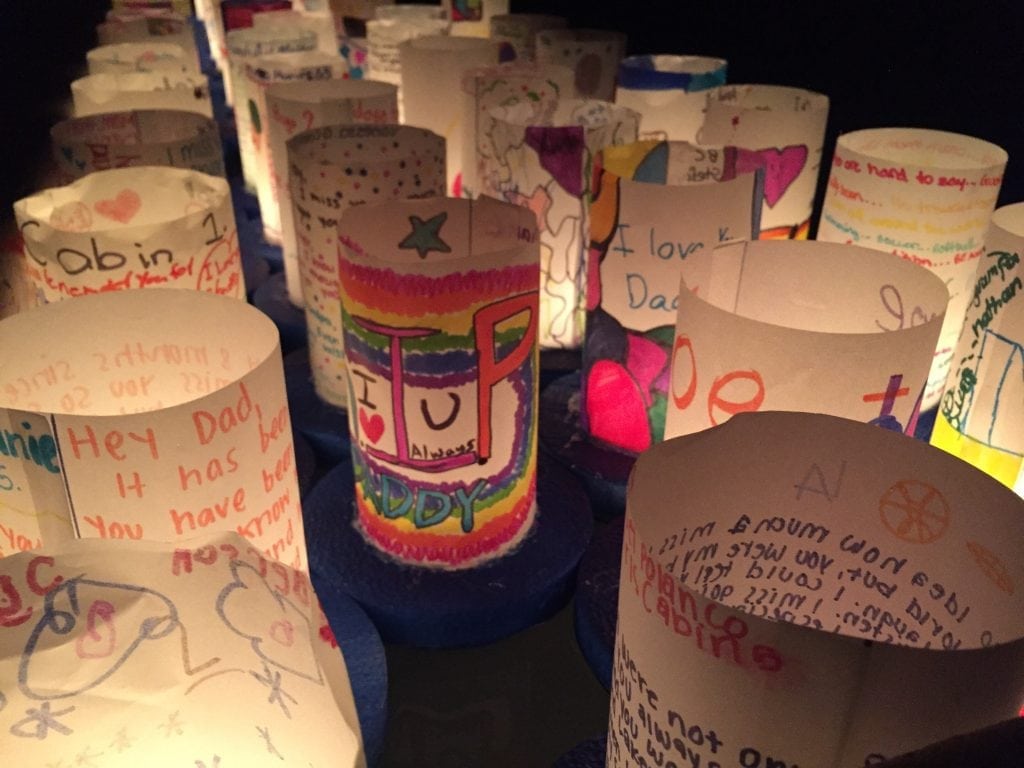
Kids at Camp Erin, a program offered by Our House Grief Support Centers, get a chance to spend time with others who have lost loved ones, which helps them feel less alone. PHOTO COURTESY OUR HOUSE
If your family lost a loved one this year, the approaching holiday season might seem a little less joyful. And how your family approaches it can make a big difference – especially for the children.
“Kids are going to take their cues from the adults,” says Lauren Schneider, clinical director of child and adolescent programs at Our House Grief Support Centers in West L.A. and Woodland Hills. Our House provides support groups and other services for children and adults, and Schneider has advice for families coping with the loss of a loved one this season.
Begin with a family meeting to talk about how you will handle your celebrations and traditions. Even very young children should be included and asked their opinions in an age-appropriate way. For example: “Daddy used to take you to pick out the Christmas tree, but Daddy isn’t here with us now. Would you still like to go and help pick it out?” If it feels too difficult to continue some of your traditions this year, make a plan for what you will do instead.
Your plan should include some special way to acknowledge your loved one. “The worst thing for the kids is when the person who died is not mentioned,” says Schneider. Set a place for them at the Thanksgiving table, hang their Christmas stocking or mix up their favorite noodle kugel recipe. Then talk about happy memories of that person. “We as adults need to help children preserve their memories and remind them how much they were loved by that person,” Schneider says.

During the holidays, it’s important to find special ways to help children acknowledge and remember loved ones who have died. PHOTOS COURTESY OUR HOUSE
You might even start a new tradition, such as visiting the cemetery to decorate family graves, taking cookies to an assisted-living facility or volunteering to serve food to the homeless. Whatever you do, make sure everyone is included. “We don’t want anyone in the family grieving alone,” says Schneider.
Tears are inevitable, but be careful about letting your young child see your own grief. You don’t want them to avoid talking about the person who died, or worrying that you won’t be able to take care of them. Tell them that you’re sad, but that you’re glad to be there with them. Let them know it is OK to play and have fun.
And if you are falling apart or your child is struggling, bring in help. Kids who are grieving can feel isolated and alone. “When a child experiences death, they’re not as likely to talk about it with their peers,” Schneider says.
Support groups for children and parents can help the whole family understand that even though this holiday season might feel a little lonely, they are not alone. Learn more about the groups Our House offers at www.ourhouse-grief.org.
























